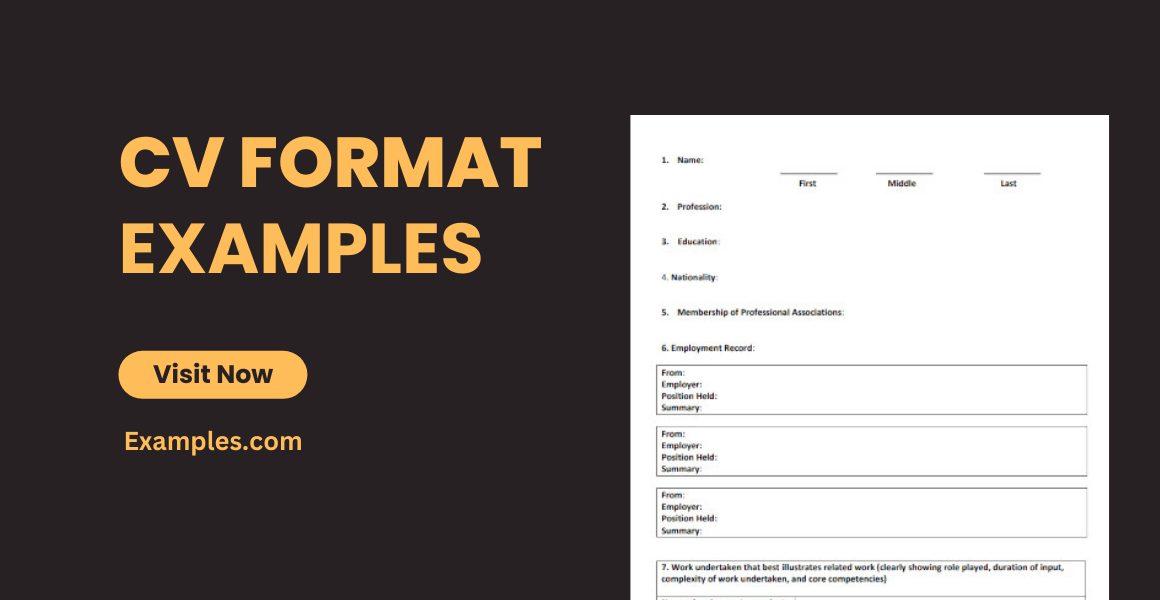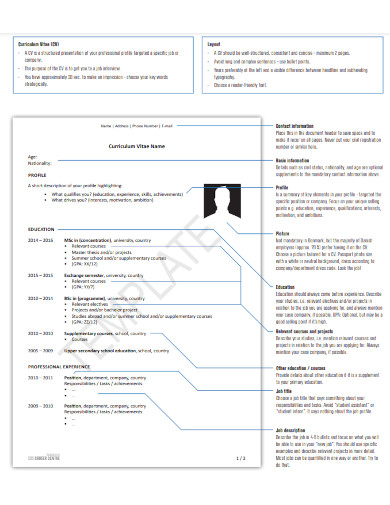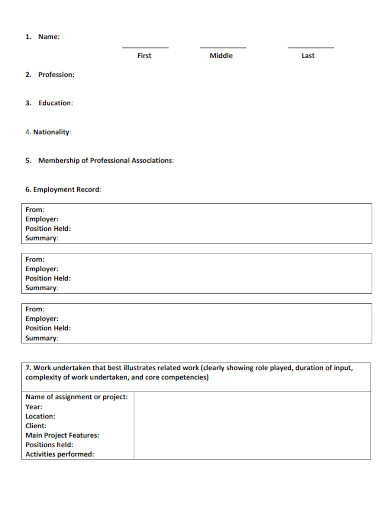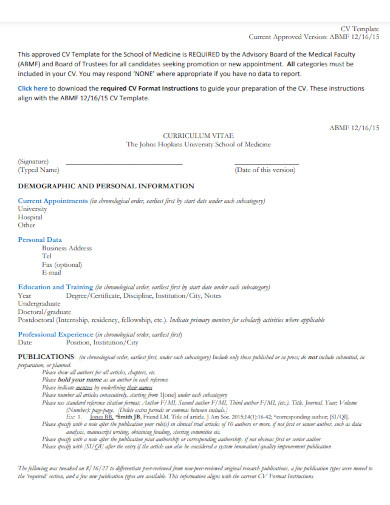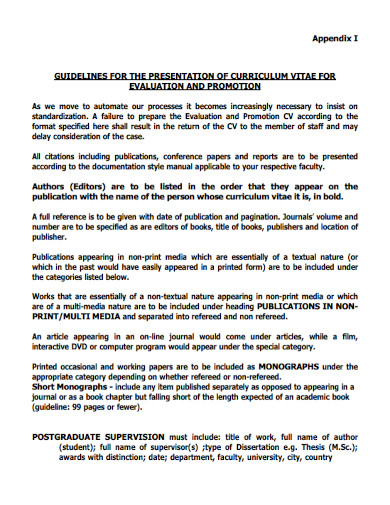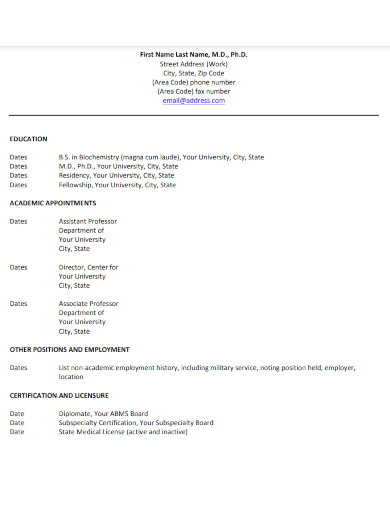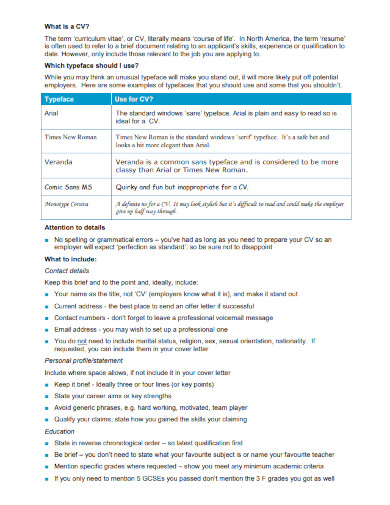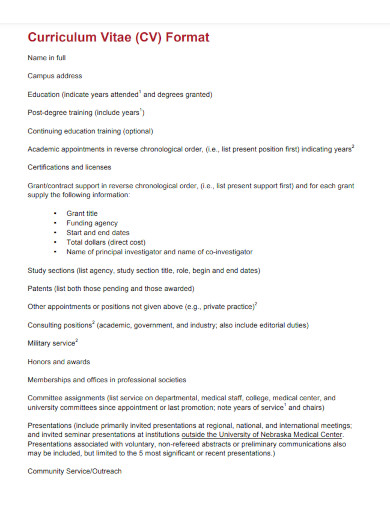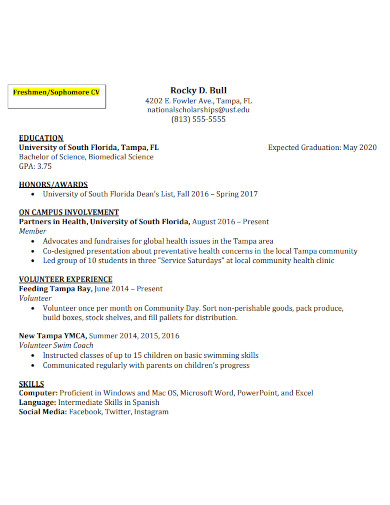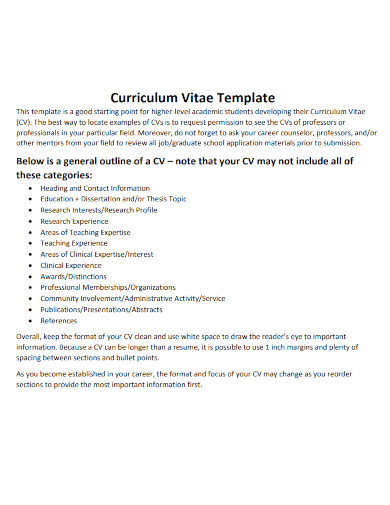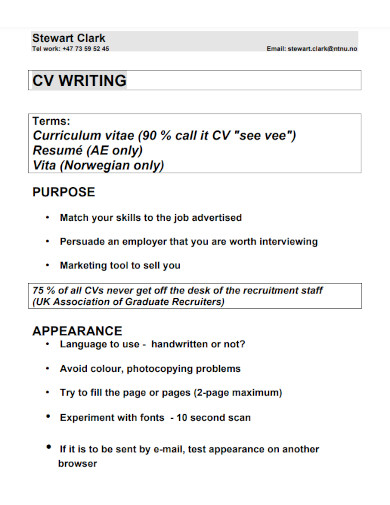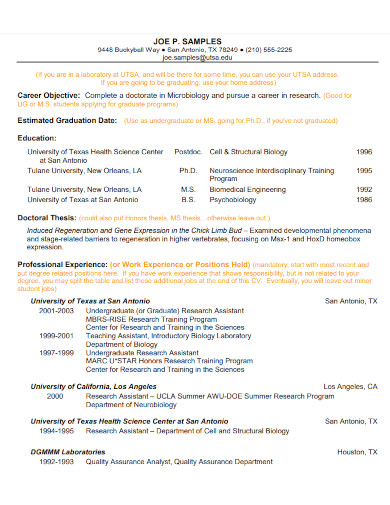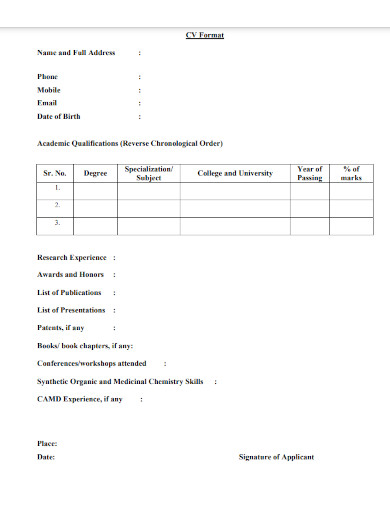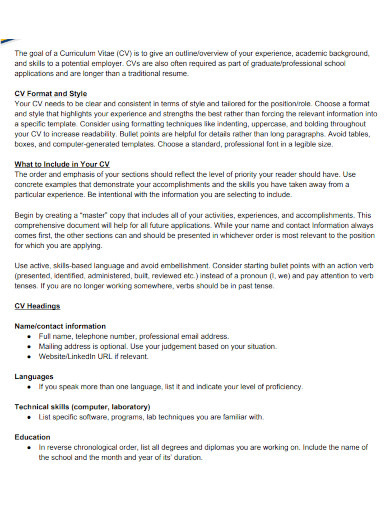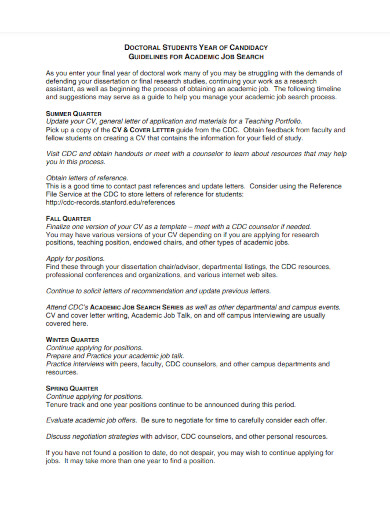13+ CV Examples to Download
Every job hiring has a specific set of documents to begin the application process. Some of these positions require the applicant to instead submit a CV in place of a resume. For those unsure about the format, using professional cv templates can simplify the process and ensure a polished presentation.
1. CV Template
2. World Bank CV Template
3. CV Template Current Approved Version
4. Sample CV Format Template
5. CV Format PDF
6. CV Writing Tips
7. Curriculum Vitae (CV) Format
8. Undergraduate Curriculum Vitae
9. CV Tips and Template
10. CV Writing Template
11. Biology CV Sample
12. CV Format for Name and Full Address
13. Writing a CV Format
14. CVs and Cover Letters
What Is The CV
A Curriculum Vitae or a CV is an application document that will holistically contain the writer’s overall employment and educational history regardless of the position the writer is applying for. Unlike a resume, the CV can span from one page to multiple pages, which are full of information.
How to Create Your CV
A well-written CV can span plenty of pages, as it will contain all of your accumulated educational and professional experiences. If you need more CV writing tips, you can use the various CV samples, CV examples, and CV templates on the list above.
Step 1: Create a Cover Letter
When sending a CV, you will need to outline and create a cover letter that will preface the CV. The cover letter will help improve the pacing of your CV and will introduce said CV to the hiring manager or HR.
Step 2: Write Your Contact and Personal Information
The upper portion of your CV should have your contact and personal information. Note, you will need to write down the information as accurately and precisely as possible because this will be the primary way the hiring manager or HR will contact you.
Step 3: Create a Headline and Introduction
Before listing out your introduction in the CV, you will need to create a single statement headline, similar to a resume headline, which will succinctly summarize your qualities. Afterward, you will write down an introduction that is similar to your CV.
Step 4: If Possible, List Out Your Work and Professional Experience
If you have work and/or professional experience, then you must list out all your experience in a bulleted list. This list will hold your previous position, the years you have worked in said position, and the responsibilities you previously held.
Step 5: Write Down All Your Educational Attainments and Accomplishments Alongside Your Skills
After you have finished writing down your professional experience, you must now list all of your educational attainments and accomplishments. Not only that but alongside your educational accomplishments, you must also write down all of the transferable hard and soft skills at your disposal.
FAQs
CV vs. resumes; what is the difference between CVs and resumes?
Curriculum Vitae or a CV is a document that contains all of the educational and professional information of the person using said document regardless of the position said person is applying for. A resume, on the other hand, acts as the juxtaposition of a CV as it presents more specific information that is only adjacent to the applicant’s chosen position or profession. The main difference between these two application documents is in the way the applicant uses them and the length they present themselves as.
When is the right time to use a CV in the application process?
Education-related or adjacent positions and professions require the applicant to use or send a Curriculum Vitae or CV. Not only are CVs required for these positions, but research permits, grants, academic programs, and others of the like will also require the applicant to send a CV instead of a general resume. Otherwise, if the applicant is applying for a normal position that is not related to academia, then the default application document that the person will send is the resume unless explicitly stated. In conclusion, when the applicant is applying for a position that is related to academia or wants to obtain a research permit, then the applicant must send a CV.
Can you write a CV when you don’t have any work or job experience?
Yes, you can create a CV without any work experience, just like a resume with no experience. Writing a CV when you have no work experience will require the applicant to creatively think of ways to display one’s skills and reasoning. The CV will need to be written with a personal introduction, similar to that of a resume introduction, to help create a positive impression that the hiring manager or HR will use to endorse the applicant further into the hiring process. Not only does the writer have to include an introduction, but they will also need to list out their transferable hard and soft skills in their CV to make them even more viable in the eyes of the hiring manager or HR. In conclusion, it is possible to write a CV without any work or job experience, but it requires the applicant to further think up ways to creatively sell themselves through the CV.
The Curriculum Vitae or CV is an application document that people use as a substitute for a resume when applying for an academic position, research permit, research grant, and other academic programs. Similar to a perfect resume, a person can create a well-written CV by using various writing methods and augments to improve the quality of their CV. The best resumes are ones that cover all the bases, while the best CVs are the ones that are comprehensive and complete.


